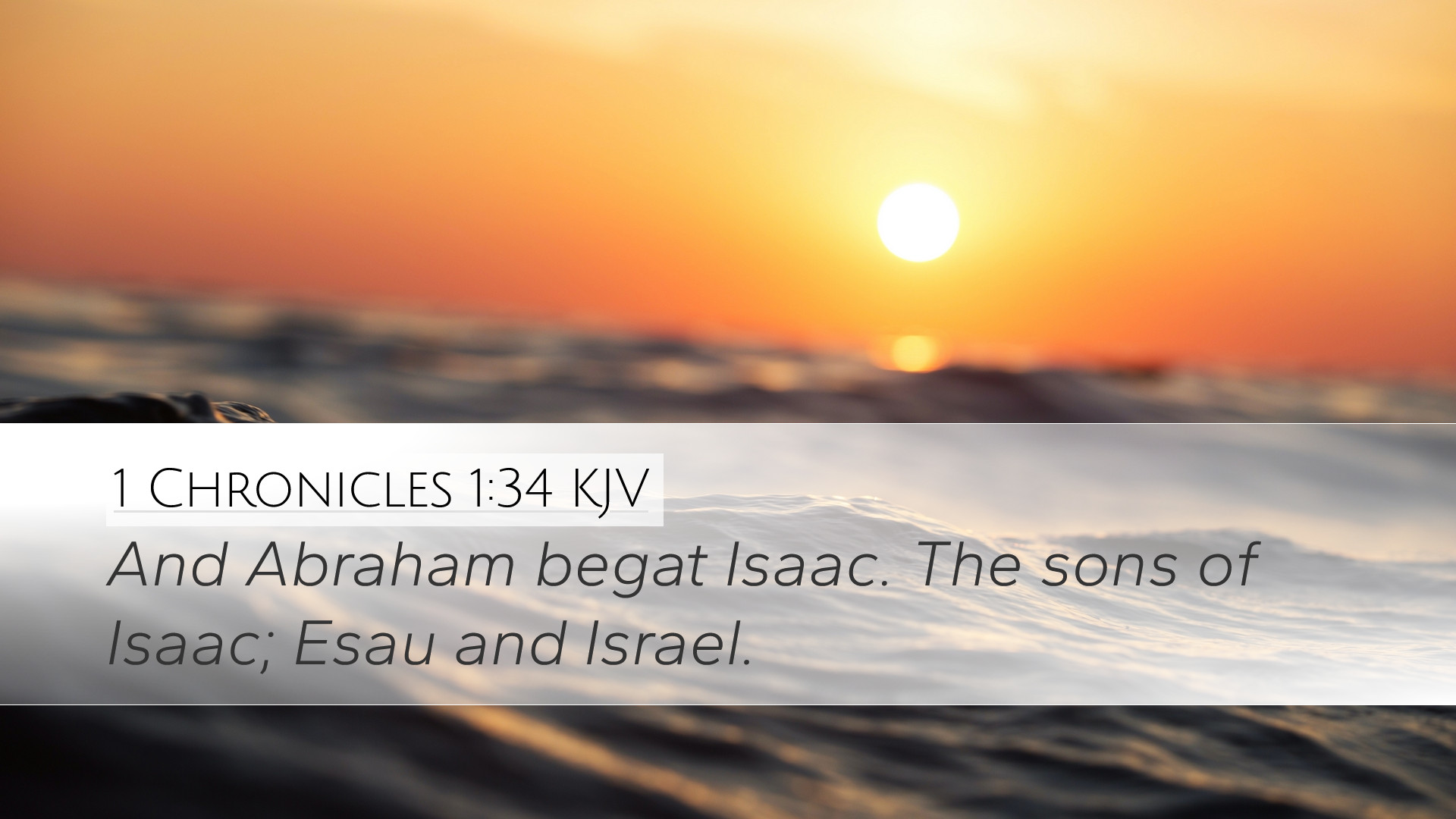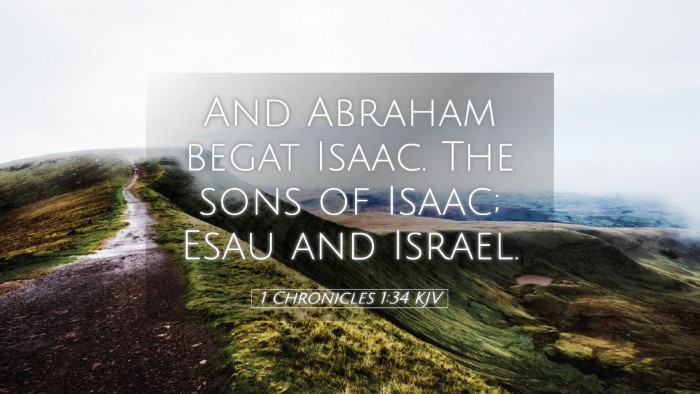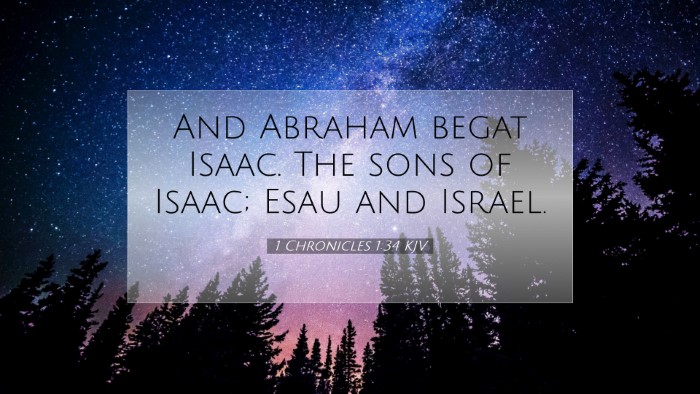Commentary on 1 Chronicles 1:34
Bible Verse: 1 Chronicles 1:34 - "And Abraham begat Isaac. The sons of Isaac; Esau and Israel."
Introduction
1 Chronicles serves as a genealogical record that underscores the importance of lineage in Israel's history. This verse is pivotal as it not only traces the genealogy of Abraham through his son Isaac but also marks the beginning of two significant lineages in the Israelite narrative: Esau and Israel (Jacob). This commentary aims to elucidate the implications, insights, and theological significance of this verse.
Contextual Analysis
The genealogies of 1 Chronicles are essential for understanding the heritage of Israel, emphasizing God's covenantal promises. The historical backdrop places Abraham as a foundational figure in Israel’s spiritual lineage, and his relationship with Isaac is a divine testament to God’s fidelity to His promises.
Significance of Names
The names mentioned in this verse are not mere labels; they carry profound meanings:
- Abraham: Meaning 'father of many nations', signifying God's promise of progeny.
- Isaac: Meaning 'laughter', reflecting the joy of his miraculous birth to Abraham and Sarah.
- Esau: His name implies 'hairy', which speaks to his physical appearance at birth.
- Israel (Jacob): Meaning 'he struggles with God', indicating his transformative encounter with God.
Theological Reflections
This verse encapsulates the generational promise initiated by God to Abraham, which establishes that the chosen line continues through Isaac. The mention of both sons introduces the concept of dual destinies influenced by divine purposes.
Divine Sovereignty and Human Agency
Esau and Jacob represent two different paths, chosen by God for distinct purposes:
- Esau: His narrative primarily serves as a caution against secularism and worldly values, as he sold his birthright for temporal satisfaction.
- Jacob (Israel): His story illustrates the complexities of divine election and grace, ultimately culminating in the establishment of the nation of Israel.
Commentary Insights
Matthew Henry
Matthew Henry emphasizes the importance of this genealogy, noting that it establishes God’s faithfulness in covenantal promises. He remarks that each name reminds us of the unfolding of God's plan through generations, highlighting the significance of Abraham's role as the father of faith.
Albert Barnes
Albert Barnes reflects on the implications of Abraham's progeny. He suggests that the identities of Esau and Jacob foreshadow broader themes of conflict and reconciliation within the nation of Israel. Barnes underscores that this genealogical recording reinforces the perpetual covenant that God makes with His people.
Adam Clarke
Adam Clarke draws attention to the socio-cultural implications of the names mentioned, particularly the identity of the descendants. His commentary elucidates how the relationship between Esau and Jacob epitomizes the struggle within humanity between spiritual and carnal pursuits. Clarke points out that God's election does not negate human responsibility, a vital lesson for leaders and scholars of the faith.
Lessons for Modern Believers
This genealogical record offers several lessons for contemporary readers:
- God's Faithfulness: Christians can find assurance in the faithfulness of God across generations, highlighting the continuity of His work.
- If We Embrace Our Identity: Understanding our spiritual heritage enhances our identity in Christ, as we partake in the promises given to Abraham.
- Choice and Consequence: The choices made by Esau and Jacob underscore the importance of aligning choices with God’s will, with consequences that can impact future generations.
Conclusion
The genealogy in 1 Chronicles 1:34 serves not only as a historical record but as a theological reflection on God’s unwavering commitment to His people. It invites pastors, theologians, and scholars to explore the delicate interplay of divine sovereignty and human agency, urging believers to reflect on their own spiritual lineage and the implications of their choices.


